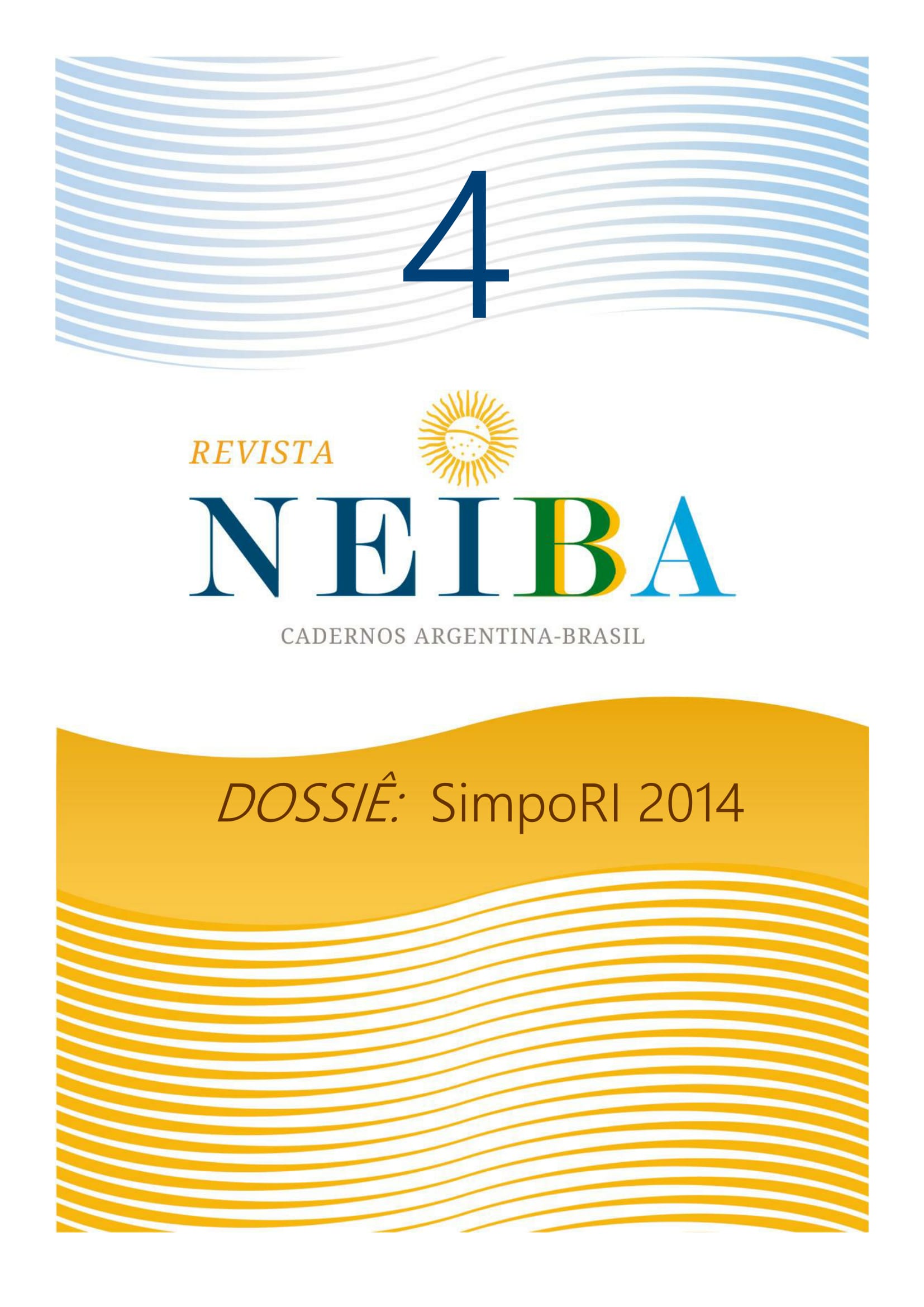A “guerra às drogas” a partir de lentes feministas: interseções teóricas possíveis
Keywords:
Gênero, Drogas, MilitarizaçãoAbstract
O objetivo do presente artigo é refletir sobre as contribuições teóricas que os estudos feministas e de gênero das Relações Internacionais podem trazer às análises críticas sobre “guerra às drogas”. Baseando-nos na literatura sobre gênero, militarismo e militarização, analisamos representações de gênero presentes nos discursos oficiais do Estado estadunidense sobre controle de drogas ilícitas na América Latina. Ler a militarização das políticas antidrogas estadunidenses para a América Latina a partir de lentes de gênero nos permite enxergar outras dinâmicas de poder que operam na construção discursiva da “guerra às drogas” em termos dicotômicos, a começar pelo próprio binarismo entre “protetores” e “protegidos”.
References
Clinton, W. J. (2000). Videotaped Address to the People of Colombia (Online). The American Presidency Project. Disponível em http://www.presidency.ucsb.edu/ ws/index.php?pid=1410&st=drug&st1=cocaine (acesso em 22/10/2014).
Dalby, S. (1997). Contesting an Essential Concept: Reading the Dilemmas in Contemporary Security Discourse. In: Krause, K. & Williams, M (Eds.). Critical Security Studies: Concepts and Cases. Minneapolis, Taylor & Francis e-Library, 3-31.
Detraz, N. (2012). International Security and Gender. Cambridge, Polity Press.
(DPA) Drug Policy Alliance. Fact Sheet: Women, Prison and the Drug War (Online). Disponível em http://www.drugpolicy.org/resource/women-prison-and-drug-war (acesso em 22/10/2014).
Enloe, C. (1987). Feminist Thinking about War, Militarism and Peace. In: Hess, B. (ed.). Analysing Gender: A Handbook of Social Science Research. Newbury Park, Sage.
________ (1993). The Morning After: Sexual Politics at the End of the Cold War. Berkeley, University of California Press
________ (2000). Bananas, Beaches and Bases: Making Feminist Sense of International Politics. Berkeley, University of California Press.
Fierke, K. M. (2007). Critical Approaches to International Security. Londres, Polity Press.
Fiore, M. (2002). Algumas reflexões a respeito dos discursos médicos sobre uso de “drogas”. Texto apresentado na XXVI Reunião Anual da ANPOCS.
Fraga, P. C. (2007). A geopolítica das drogas na América Latina. Revista Em Pauta, n. 19, p. 67-88.
Giacomello, C. (2013). Género, drogas y prisón. Ciudad de México, Tirant Io Blanch.
Hoffman, S. (1977). International Relations: An American Social Science. Deadalus, n. 106, ed. 3, 41-60.
Kelly, L. (2000). Wars Against Women: Sexual Violence, Sexual Politics and the Militarised State. In: Jacobs, S., Jacobson, R. & Marchbank, J. (eds.). States of Conflict: Gender, Violence and Resistance. London, Zed Books.
Mannava, P.; Zegenhagen, S. & Croft, Nick (2010). Dependent on Development. The Nossal Institute for Global Health.
Mountian, I. (2012). Cultural Ecstasies: Drugs, Gender and the Social Imaginary. East Sussex, Routledge.
Nixon, R. (1971). Special Message to the Congress on Drug Abuse Prevention and Control (Online). The American Presidency Project. Disponível em http://www.presidency.ucsb.edu/ws/?pid=3048 (acesso em 22/10/2014).
(OEA) Organização dos Estados Americanos (2014). Mujeres y Drogas en las Américas (Online). Comisión Interamericana de Mujeres. Disponível em http://www.oas.org/en/cim/docs/WomenDrugsAmericas-ES.pdf (acesso em 22/10/2014).
Reagan, R. (1988). Remarks at a White House Ceremony Honoring Law Enforcement Officers Slain in the War on Drugs (Online). The American Presidency Project. Disponível em http://www.presidency.ucsb.edu/ws/?pid=35698 (acesso em 22/10/2014).
Rodrigues, T. (2012). Narcotráfico e Militarização nas Américas: Vício de Guerra. Contexto Internacional, PUC-Rio, v. 34, n. 1, 9-41.
Tickner, J. A. (1992). Gender in International Relations: Feminist Perspectives on Achieving Global Security. Nova York, Columbia University Press.
____________ (1996). Identity in International Relations Theory: Feminist Perspectives. In: Lapid, Y. & Kratochwil, F. (eds.). The Return of Culture and Identity in IR Theory. Boulder CO, Lynne Rienner.
____________ (2001). Gendering World Politics: Issues and Approaches in the post-Cold War Era. Nova York, Columbia University Press.
Viotti, Paul & Kauppi, Mark (2010). International Relations Theory. New York: Longman, 4ª ed.
Walker, R. B. J. (1992). Gender and Critique in the Theory of International Relations. In: PETERSON, V. S. Gendered States: Feminist (Re)Visions of International Relations Theory. Boulder CO, Lynne Rienner.
Waltz, K. (1979). Theory of International Politics. Reading MA, Addison-Wesley.
Whitworth, Sandra (1994). Feminism and International Relations. Londres, Macmillan Press.
Downloads
Published
How to Cite
Issue
Section
License
The Copyrights of articles published in Revista Neiba, Cadernos Argentina-Brasil belong to their respective author (s), with the first publication rights assigned to Revista Neiba, Cadernos Argentina-Brasil, with the work simultaneously licensed under a Creative Commons Attribution License, which allows sharing the work with acknowledgment of authorship and initial publication in this journal. Due to the fact that they appear in Revista Neiba, Cadernos Argentina-Brasil, the articles are free to use, with mandatory attribution of authorship, for use in educational and non-commercial applications, according to the terms of the Creative Commons Attribution 4.0 International License adopted by this journal.
This work is licensed under a Creative Commons Attribution 4.0 International License





